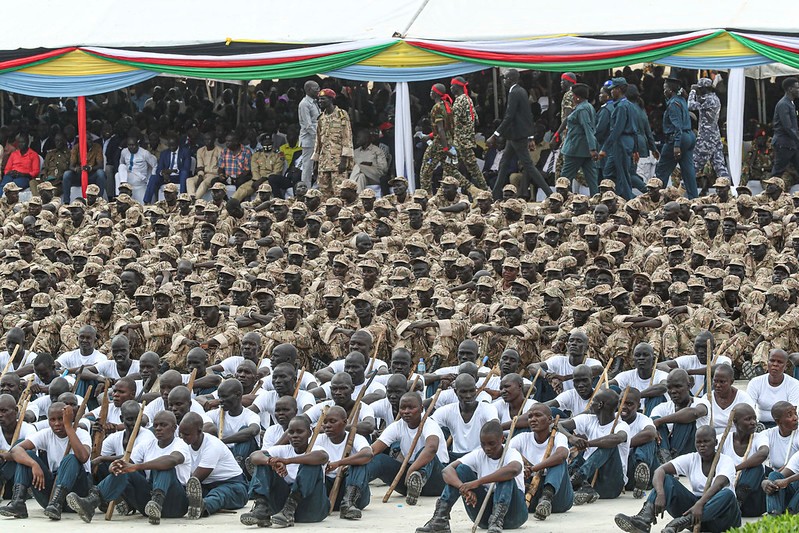
Second phase of training for the Necessary Unified Forces is scheduled to commence on September 1, 2025, Senior Presidential Advisor and Head of the National Transitional Committee, Kuol Manyang Juuk announced.
The forces will undergo a three-month training and are slated for deployment in December 2025. Kuol said the training of the forces is a required step in creating a secure environment for the general elections planned for December 2026.
“We plan to see that phase two begins in the first week of September and training to go in on for three months by the end of November then they can be passed out and be ready for deployment throughout the country,” he said.
“This will secure the processes of voter registration for the elections,” Kuol added in a statement broadcasted by the state-owned SSBC.
This new timeline was established during a meeting between the leadership of the National Transitional Committee (NTC), the Joint Defense Board (JDB), the Joint Military Ceasefire Commission (JMCC), and the Joint Transitional Security Committee (JTSC) on Tuesday.
More than 50,000 unified forces, comprising personnel from the Army, National Security, Police, and other organized forces from the SPLM-IG, SPLM-IO, and SOA, have already graduated from centers in the Equatoria, Upper Nile, Baha’i, and Gaza regions.
However, some of the forces are yet to be formally assigned duties.
According to a resolution from the meeting, the deployment of the remaining forces from the first phase is being expedited to make way for the new recruits.
Kuol said the deployment of the new forces is meant to secure the country for the next stage of the electoral process.
The NTC chairperson also addressed other pending issues, including the confirmation of officer ranks, noting the lists have been submitted to the president’s office.
“Confirmation of the ranks is already in front of the president and I will follow this up and we’ll find a solution,” he said.
The security leadership, including the new army chief of staff General Dau ATurjong, JDB co-chair General Kongar Koth of the SPLM-IO, and General Garang Akol Ayii of the South Sudan Opposition Alliance (SSOA), have adopted a new strategy to restore trust among the forces and advance the implementation of the peace agreement.
This renewed approach from the parties aims to move past previous delays and accelerate the implementation of the security protocol, which is widely described as the engine and heart of the 2018 Revitalized Peace Agreement.
They are now focused on restoring trust and building confidence among the forces as they work to create a conducive atmosphere for a peaceful democratic transition.
As the country prepares for the 2026 elections, the successful training and deployment of the unified forces are seen as vital for a stable and secure electoral process.

